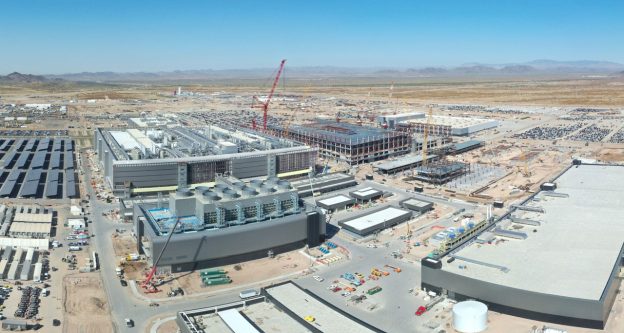
Recently, the Financial Times reported that despite the US offering over $400 billion in tax incentives, loans and subsidies to boost local clean energy technology and semiconductor industries under the Inflation Control Act and the CHIPS and Science Act, the revival of US manufacturing has been slow as investors have paused their plans.
There are reportedly 114 major projects linked to these laws, with a total investment of $227.9 billion. However, projects with a total investment of approximately $84 billion are facing delays ranging from two months to several years, with some projects being postponed indefinitely. These delays include multiple semiconductor projects.
The companies cited a worsening market environment, slowing demand and uncertainty about domestic policies as reasons for the changes in investment plans.
TSMC postpones production at Arizona plant
On August 13, TSMC announced several board resolutions, including approval of a capital budget of approximately $29.6 billion, including approval of up to $7.5 billion in funding for its wholly owned subsidiary, TSMC Arizona.
TSMC had originally planned to build three factories in Arizona over the next few years, investing a total of $65 billion in them, but a recent New York Times report said that four years after the announcement, the Arizona factories have yet to produce a single chip.
According to a report by WeChat account DRAMeXchange, cultural differences and competition for labor with Intel are contributing to challenges facing TSMC’s Arizona fab, leading to production delays.
When TSMC announced plans to build a semiconductor fab in Arizona in May 2020, the original plan was to start construction in 2021 with production to begin in 2024. A second fab was announced in December 2020 with a production target of 2026.
TSMC’s website reported in May that the start of production at its first factory in Arizona had been delayed to early 2025, while the start of production at its second factory had been delayed to 2028.
TSMC has not yet revealed a start date for construction of its third fab, but official plans call for production to begin by the late 2030s.
According to TSMC’s plans, the first Arizona fab will use 4nm process technology, the second fab will employ 2nm technology, and the third fab will utilize advanced process technologies above 2nm.
Intel delays construction on Ohio project
US chipmaker Intel plans to build new factories and expansion facilities in Arizona, New Mexico, Ohio and Oregon over the next five years, creating 10,000 manufacturing jobs and 20,000 construction jobs.
But the Wall Street Journal reported in February that Intel had postponed a $20 billion chip project in Ohio due to a sluggish market and delays in U.S. subsidies.
Intel plans to build two new advanced factories in Ohio, which were originally scheduled to begin chip production in 2025. As a result of the adjustments, completion of Intel’s Fab 1 and Fab 2 projects in Ohio has been pushed back to 2026-2027, with operations now expected to begin around 2027-2028.
The financial pressures on semiconductor companies as chip-making processes evolve to 3nm and then 2nm require steep investments in fabs, leading Intel to not only delay construction of its Ohio fab but also adjust projects in Europe.
Intel plans to invest €30 billion in two factories in Magdeburg, Germany, Fab 29.1 and Fab 29.2, which were originally scheduled to start in the second half of 2023.
But delays in finalizing EU subsidies and the need to remove topsoil from the construction site have caused Intel to push back the start of construction to May 2025. Intel has also suspended investment plans for facilities in France and Italy.
Samsung postpones Taylor Fab project
Samsung initially planned to receive up to $6.4 billion in U.S. subsidies to build a semiconductor cluster in Taylor, Texas, including two advanced logic factories and one advanced packaging facility.
Taylor’s first factory was scheduled to begin construction in 2022 and begin production in 2024 with 4nm process capacity. However, local US media MySA noted that the factory’s start-up may be delayed until 2026. The delay is likely due to a slowdown in the foundry market and delayed delivery of US subsidies.
Meanwhile, reports from Tom’s Hardware and South Korean media ETnews said that due to delays in the construction of its semiconductor factory, Samsung may upgrade the factory’s advanced process technology from 4nm to 2nm.
The adjustment is aimed at strengthening Samsung’s competitiveness in advanced processes and positioning it more effectively against competitors such as TSMC, Intel and Rapidus.
read more
(Photo courtesy of TSMC)
This article cites the following sources: Financial Times, TSMC, The Wall Street Journal, My SA, Tom’s Hardware, ET News and WeChat account DRAM replacement.

Next Article
(News) If Samsung secures HBM3e supplies to NVIDIA, it will likely emerge as a pacesetter in the AI market

